KATHMANDU: Senior citizens represent a university of knowledge and experience, yet they often express frustration that the younger generation is reluctant to listen to their wisdom.
Today, age is often perceived as just a number, with sociologists emphasizing that aging is psychological.
If one can find happiness, then age should not diminish enthusiasm.
Research suggests aging is shaped by pain, suffering, anxiety, deprivation, and lifestyle.
For example, a 45-year-old person in Papua New Guinea may feel as old as a 65-year-old in Singapore due to their circumstances.
After the age of 65, concerns about aging intensify, and lack of social security can limit seniors in countries like ours to a life of complaining without much support.
Does old age equate to fading desires and dreams? Why do older individuals become more vulnerable when they require love, affection, warmth, and protection?
Why do the children who once held their parents’ fingers turn to supporting them with sticks instead of extending a helping hand?
In the context of the New Year, we spoke with four twenty-somethings about their childhood, adolescence, and current experiences.
Meanwhile, elderly individuals living in government-owned old age homes in the Pashupat area await the restoration of their self-respect.
86-year-old Ram Prasad Humagain, a resident of Balathali village in Kavre, reflects on the significance of festivals such as Dashain, Tihar, Teej, Maghe Sankranti, Shivaratri, Janai Purnima, and Matatirtha Aunshi during his youth.
He states, “Spring was the season for starting work at home, followed by the abundance of vegetation. We would eat berries. I spent time herding sheep. Communication and transportation were not as advanced as they are today.”
Recalling his childhood, Humagai shares that he fled to India at around 18 to 20 years old to avoid marriage. “I stayed in an ashram in Delhi for 14 years before returning to Nepal at 40. By then, my parents had built a house in Kathmandu and relocated there,” he says.
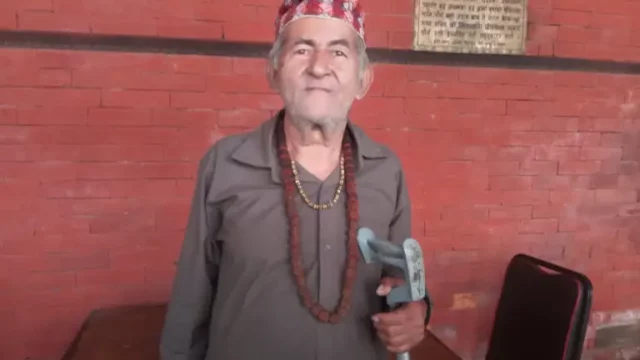
He also recalls an incident from his childhood: “I was fond of dancing and singing. My sister was standing on a tree trunk, and I accidentally fell, injuring my forehead. My mother scolded my sister. In the village, we sang while cutting grass. I would sing loudly, too.”
Humagain believes that his era was better than the childhood of today’s children.
“Everything was more affordable then. We could acquire two new sets of daura suruwal during a drought but had to wait until December. In our time, walking along the road and spotting fruit meant asking for it if we wanted to eat. Life was more enjoyable with the guidance of ‘give and take’ rather than money.”
He laments the lack of communication at home today.
“Everyone is preoccupied with their mobile phones. If challenges arise, no one helps each other.” Humagai feels distressed by these modern-day changes.
40 years of marriage and life in old age
Humagain, who went to India to pursue a spiritual life, married his wife at the age of 40. The couple lived in Kathmandu and met through casual conversation, which led to their marriage. They remain childless and now reside in an old age home.
Ms. Basanti Humagai shares, “We grew up eating corn and soy beans during our childhood. Back then, even hunger seemed sweeter than food. We were delighted to eat rice, soybeans, and other local staples. Today’s younger generation doesn’t appreciate or recognize the food we grew up eating. Instead, they prefer fast food.”
The couple’s decision to live in an ashram (old age home) was influenced by their family circumstances and limited resources.
Basanti explains, “The old age home provides meals according to a set schedule, including vegetable chiura (beaten rice) on Sunday, halwa (pudding) on Monday, rice-pudding on Tuesday, egg-chickpea on Wednesday, curd and beaten rice chiura on Thursday, and tea biscuits on Saturday. They also provide lentils, vegetables, and occasionally meat or fish for those who prefer it.”
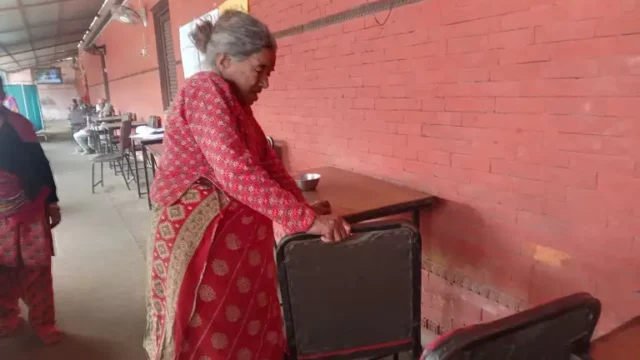
Though the Humagains are healthy and able to manage their daily tasks, they acknowledge that living in an old age home comes with its own challenges.
Basanti reflects, “Having children of our own would have brought happiness and peace, but our situation left us with no choice but to stay in an old age home. We accept it as our fate.”
Pampa’s story at 100 years old
Pampha Karki, born in Mainapokhari in Dolakha, is now 100 years old.
She no longer has a strong appetite for food and laments that she needs assistance to walk around.
Pampha spent her childhood in the village, raised by her parents, and never married.
She recalls, “During my childhood, I worked more than I played. Even during my period, I took care of my duties. Farming was a big part of my life; I was known for being fast and efficient in planting crops.”
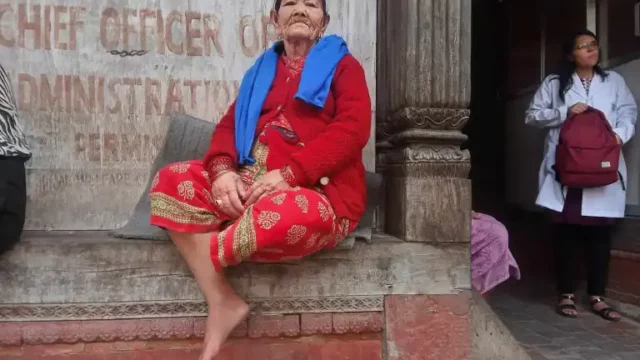
Pampha now resides in Pashupati’s old age home and has done so for the past 20 years.
She initially enjoyed life in the ashram with picnics and temple pilgrimages. However, she notes that the atmosphere has changed, with fewer visitors and activities now.
Muiya’s life and reflections
80-year-old Muiya remains active and takes care of her personal needs, from washing clothes to making her bed.
“I handle my own tasks while I can, as I don’t want to burden others,” she shares.
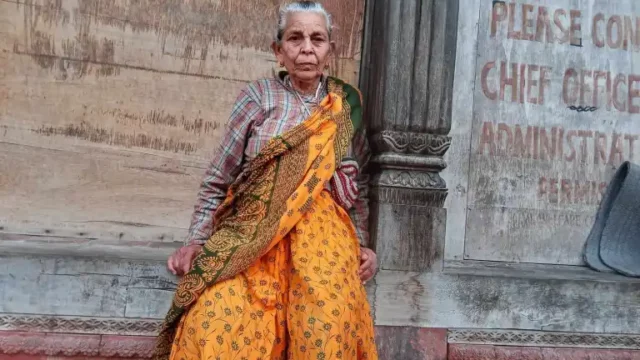
She grew up working on her family’s farm, tending to buffaloes, cows, calves, and goats, and managing crops. She recounts her experience of being married young and the challenges she faced.
Muiya was brought to the old age home in 2073 (Nepali calendar) and has since found some comfort there, even though she still wishes she could stay elsewhere.
Her family visits occasionally, which brightens her spirits.
Despite the challenges, she expresses gratitude for the government’s support and is satisfied with her life.


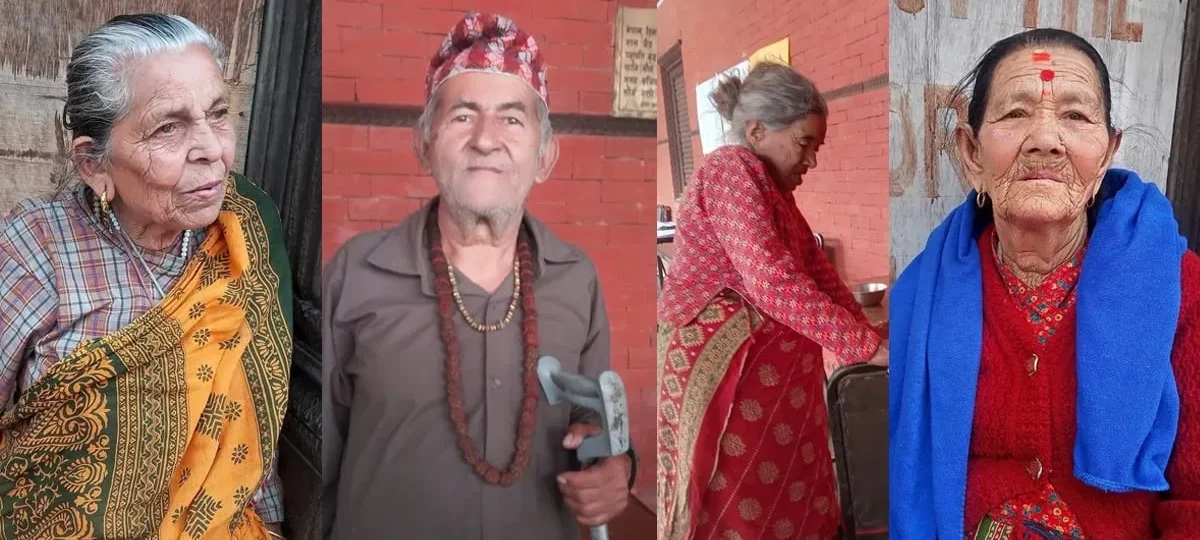






Comment